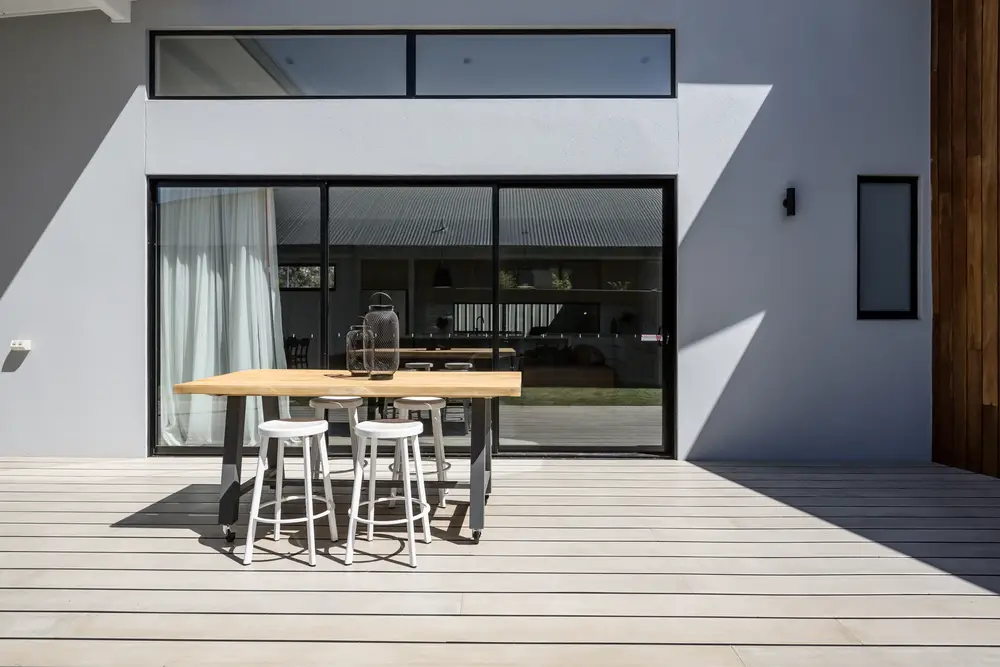If you have a sliding glass door in your home, you know how much natural light it can bring in. However, with sunlight comes heat, and too much of it can make your home uncomfortable. Fortunately, there are several ways to block the sun from your sliding glass door and keep your home cool and comfortable.
Key Takeaways
- Understanding how sunlight interacts with glass doors is crucial to effectively blocking it.
- There are several effective ways to block the sun from your sliding glass door, including using curtains, blinds, films, and shades.
- The choice ultimately depends on your personal preference, budget, and level of customization.
Understanding Sunlight and Glass Doors
When it comes to blocking the sun from your sliding glass door, it’s important to understand how sunlight interacts with glass doors. Glass is a common material used in doors and windows because of its transparency and ability to let light in. However, this also means that glass doors can let in a lot of direct sunlight, which can cause issues like heat buildup and fading of furniture and fabrics.
Direct sunlight is the sunlight that passes through a window or glass door without being diffused or reflected. This means that it can cause a lot of heat buildup and glare, which can be uncomfortable and even harmful. The amount of direct sunlight that enters your home through a glass door depends on several factors, including the angle and position of the door, the time of day, and the season.
It’s important to note that not all glass doors are created equal when it comes to blocking sunlight. Some glass doors, like Low-E glass, are designed to reduce the amount of UV rays and heat that pass through the glass. If you’re in the market for new glass sliding doors, consider investing in ones that are designed to block sunlight to help reduce your energy bills and protect your furniture and fabrics.
FOUR Ways To Block Sunlight Effectively Via The Patio Door
When it comes to blocking sunlight from your sliding glass door, there are several options to choose from. In this section, we will discuss the most effective ways to block the sun and heat, including the use of blinds, curtains, shades, and films.
1. Use of Blinds
Blinds are a popular choice for blocking sunlight from sliding glass doors. They come in a variety of materials, such as wood, vinyl, or aluminum, and can be adjusted to control the amount of light that enters your room. Blinds can also block heat transfer, making your room more comfortable during hot summer months.
To ensure that you are maximizing the effectiveness of your blinds, make sure that they fit your sliding glass door properly. You can measure your door frame and purchase blinds that are the correct size. Additionally, you can choose blinds with a reflective coating to further block the sun’s rays.
2. Application of Curtains
Curtains are another option for blocking sunlight from your sliding glass door. They come in a variety of colors and materials, such as cotton, silk, or polyester. Curtains can be used to block heat transfer, making your room more comfortable during hot summer months.
To ensure that you are maximizing the effectiveness of your curtains, make sure that they are properly installed. You can install curtains on a rod above your sliding glass door and use tiebacks to keep them open during the day. Additionally, you can choose curtains with a thermal lining to further block the sun’s rays.
3. Installation of Shades
Shades are an effective way to block sunlight and heat from your sliding glass door. They are available in a variety of materials, such as bamboo, fabric, or vinyl. Shades can be adjusted to control the amount of light that enters your room and can also block heat transfer.
To ensure that you are maximizing the effectiveness of your shades, make sure that they fit your sliding glass door properly. You can measure your door frame and purchase shades that are the correct size. Additionally, you can choose shades with a reflective coating to further block the sun’s rays.
4. Utilization of Films
Films are a cost-effective way to block sunlight and heat from your sliding glass door. They are available in a variety of materials, such as polyester or vinyl. Films can be applied directly to your sliding glass door and can also block heat transfer.
To ensure that you are maximizing the effectiveness of your films, make sure that they are properly installed. You can apply films yourself or hire a professional to do it for you. Additionally, you can choose films with a reflective coating to further block the sun’s rays.
Conclusion
Blocking the sun from a sliding glass door can be achieved through various methods. You can choose a quick and easy short-term solution like using plain linen curtains, or opt for a more long-term solution like installing blinds or changing to French doors with built-in blinds or louvers.

